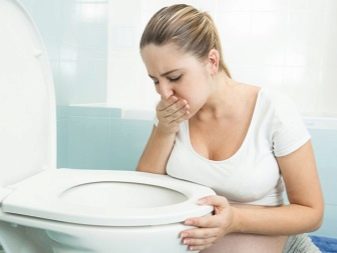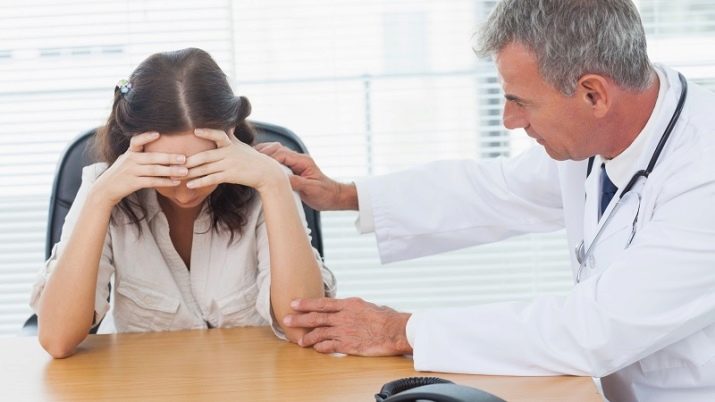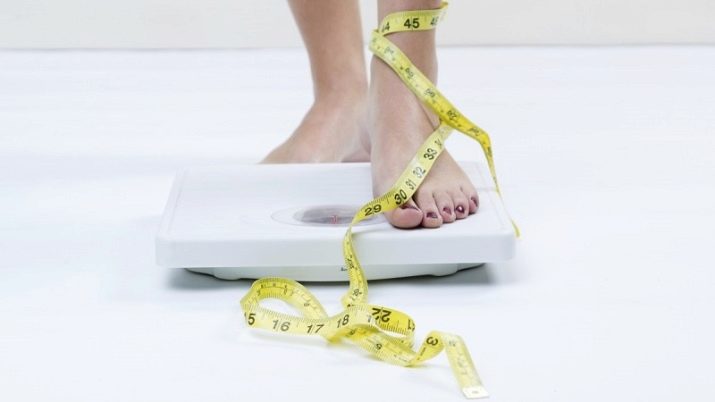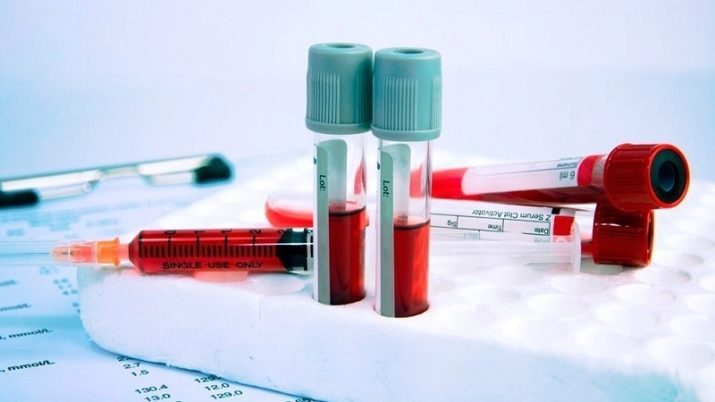Symptoms and Treatment of Depression During Pregnancy

Throughout pregnancy, most women experience intense anxiety, general depression, and increased anxiety. An unexpected change in the way of life, unusual physical and emotional sensations sometimes lead the expectant mother into depression.

Provoking factors
The onset of pregnancy completely changes a woman's life. She is aware of the onset of a responsible time and at the same time she does not want to lose her freedom. It can be difficult for a girl to come to terms with the idea that her friends continue to enjoy the old life, and the expectant mother loses her carefree life and takes on certain obligations. The woman no longer belongs to herself. The usual rhythm is completely out of order. Some people are afraid of changes in the figure. Others are afraid of the impending birth. They are afraid for themselves, for the child. They are afraid of experiencing severe pain during childbirth. Even a long-awaited pregnancy can plunge a lady into deep depression.
There are other reasons for the onset of depression in the expectant mother.
- Hereditary predisposition plays an important role in the onset of depressive syndrome. It is often passed down through the female line from generation to generation.
- Unplanned pregnancy may come as a complete surprise to a young person. Dumbfounded by such news, the girl perceives the news as a real tragedy.
- Previous unsuccessful pregnanciesresulting in miscarriage cause negative emotions.Artificial childbirth in the past or the presence of serious consequences after the birth of the first child provokes panic attacks and uncontrollable fear of future obstetrics.
- After prolonged fertility treatment some women cannot quickly switch to the joyful event of future motherhood. If a woman's awareness of this message is delayed, a depressive disorder may occur.
- Lack of financial stability provokes the emergence of fears for a future life. Various stressful situations caused by financial difficulties, lack of earnings or permanent housing can negatively affect the psyche of the expectant mother. She cannot mentally accept the unborn child because of the inner feeling of hopelessness and lack of understanding of how to proceed.
- Strong psychological shock can cause death of a loved one, rape, forced relocation, loss of a job.
- Hormonal changes in the body, a decrease in the thyroid gland, jumps in blood pressure are often accompanied by a deterioration in the general emotional and physiological background of the expectant mother.
- Various disorders, expressed in the form of toxicosis, seizures or difficulties in caring for herself, make a pregnant woman feel her own inferiority. Intolerance to certain foods or odors causes a general feeling of deterioration. The complicated course of pregnancy, which can provoke some kind of disease in the fetus, is reflected in the woman's condition.
- Long-term treatment with psychotropic drugs, traumatic brain injury or intoxication caused by bad habits provoke an organic change in the structure of the brain and lead to the onset of a depressive disorder.
- Features of sexual life at the stage of bearing a child, they cause a decrease in the general emotional background. The changeable mood of a pregnant companion is often the cause of conflicts with the chosen one.
- Difficult relationship with the future father of the baby noticeably worsen the emotional state of a pregnant lady. Insufficient support from the husband or the refusal of a young man to take part in the life of the baby is reflected in the emotional and physiological state of the expectant mother. The woman is nervous and worried about the outcome of events.
The absence of a reliable male shoulder can worsen the mental state of any healthy woman.


Features in different trimesters
Depression during pregnancy occurs against the background of hormonal changes in the female body. The biological rhythm can be disrupted due to problems with the production of melatonin during the cold season. Throughout pregnancy, a woman's mental and physiological state changes. Different stages of fetal development are associated with the transformation of the general hormonal background of the pregnant woman.
First
A total restructuring of the whole organism makes it tune in a different way. The development of toxicosis often has an adverse effect on the psyche of a young lady. In the early stages of pregnancy, a depressed mood is recorded due to the expectant mother's anxiety about the baby. The threat of miscarriage or personal problems adversely affect the psychological state of the pregnant person. Some sociable ladies are greatly depressed by the forced isolation from society.
In women prone to blues, depression lasts throughout pregnancy. Change of residence also negatively affects the emotional state of future parents.
A serious illness or death of a loved one often causes depression. Sometimes an unplanned pregnancy can lead to discouragement.

Second
The middle trimester is characterized by significant lifestyle changes. A woman's belly grows round, her breasts swell, and her facial features change. The woman has to drastically reduce the number of meetings with friends and attending familiar events. She has to give up wearing high-heeled shoes and familiar outfits. Excessive weight gain often drives a lady into a depressive state.
Constant analysis of her internal state and regular monitoring of the baby's movements in the womb often lead the lady to depression, which increases the risk of depression. In some people, worsening mood is observed due to increased headaches or back pains. Someone is annoyed by the enlargement of the uterus. Self-realization in new directions is very important at this stage. The expectant mother can enroll in some courses or start mastering a new profession.

Third
Anxiety increases in late pregnancy. It is observed even in very calm people. Before the very birth, many fear an unfavorable outcome. Various negative emotions intensify in the future woman in labor. A woman at this time is characterized by tearfulness and irritability. Antepartum depression adversely affects fetal development. Frequent stress and hysterical seizures affect the health of the baby. Having been born, the baby often cries, sleeps restlessly and lags behind in development.
Active movement of the baby often brings pain. The nearby kidneys and bladder are affected by kicks in the womb. Often, a woman cannot get enough sleep because of a large abdomen that interferes with her and frequent urination. For some ladies, heartburn prevents them from enjoying their meals. Developing depression at this stage is often the cause of premature birth. In severe depression, a psychologist or psychotherapist recommends the use of antidepressants in late pregnancy.
Medication can cause many side effects, so it's best to prevent depression from developing. At the first symptoms of the disease, you should consult a specialist.

Signs
Sometimes depression is mistaken for the usual mood swings that most women experience in the last weeks of pregnancy. They are associated with neuroendocrine processes occurring in the female body in preparation for childbirth. The condition poses no danger to a woman. She easily copes with it herself. Depression in pregnant women is accompanied by frequent mood swings and decreased vitality. The woman's brain during this period works a little differently than before. Hormonal changes affect the synthesis of chemicals in the brain. Often it is they who plunge the expectant mother into a depressive state.
At the beginning of pregnancy, at the onset of depression, a girl's ability to work begins to decrease, and certain difficulties arise in making important decisions. For a period of 3 months, a woman can no longer concentrate on any particular case. Her attention is scattered. At 37, 38 and 39 weeks, the pregnant woman begins to overcome fear due to the lack of experience in caring for the child. She is afraid not to cope with the role of mother. At 9 months of pregnancy, a woman may experience panic attacks before the upcoming birth.
40 weeks pregnant is the home stretch on the way to labor. For this reason, it is common for the expectant mother to experience a strong sense of anxiety. She needs to set herself up in a positive way, and not succumb to gloomy reflections.

Other symptoms may indicate prenatal depression:
- increased anxiety, tearfulness;
- an unreasonable feeling of sadness, despair and longing;
- a surge of negative emotions, tearfulness, severe irritability;
- complete immersion in yourself and your own experiences;
- loss of interest in the outside world;
- lack of joy from various events;
- loss of strength, general lethargy;
- loss of appetite or, conversely, excessive gluttony;
- weakening of sexual desire;
- sleep disturbance: insomnia or drowsiness;
- lack of desire to communicate with friends and family;
- refusal to take care of their own health;
- a sharp decrease in self-esteem and the appearance of suspiciousness;
- feeling of own uselessness and helplessness;
- suicidal thoughts;
- loss of muscle tone in the arms and legs;
- the appearance of incomprehensible pain in different parts of the body.
If you have at least 5 of the above signs, you need to seek help from a psychologist or psychotherapist.

Diagnostic methods
Specialists diagnose the presence of depression in pregnant women by performing various tests. Instrumental techniques are widely used. The severity of the disease is usually determined using the Beck or Hamilton rating scales. An important role is played by the timely identification of a tendency to depression at the genetic level. Taking a blood test to detect a hereditary predisposition helps to identify the disease at the initial stage of its development.
To establish an accurate diagnosis, psychologists and psychotherapists pay attention to problems associated with a deterioration or increase in appetite, insomnia or excessive sleepiness, excessive lethargy or agitation, decreased concentration and difficulty making decisions. In addition, the depressed person feels chronic fatigue and lack of energy.
To confirm the final diagnosis, specialists are guided by 2 important criteria:
- whether general depression and depression lasts daily for two weeks or more;
- whether there is no interest in everyday life during the same period of time.

How to get rid of?
Often, the signs of a depressive state disappear by themselves as a woman adapts to a new situation. Creative activities have a beneficial effect on the psychological state of the individual. Find new hobbies for yourself. Take up painting, knitting, or sewing. A person can independently reduce the level of general depression. A woman needs to avoid any stressful situations. It is necessary to communicate less often with unpleasant persons, read and watch the news. You should not consume alcohol, drugs, or smoke.
It is necessary to fight all existing bad habits. It is advisable to move more and be in the fresh air, do gymnastics and swimming. Provide yourself with adequate nutrition. Buy new clothes for yourself and baby clothes for your baby, listen to light music, watch your favorite comedy films. Improve your mood in any way. Close communication with pleasant and interesting personalities helps to cope with the disease. Visit family and friends often. Discuss with them all your concerns about the upcoming birth. You also need to enlist the support of family and friends. If you suspect the development of a depressive disorder, you should seek help from a psychologist or psychotherapist.
Sometimes a vitamin complex prescribed on time and adjustments made to the diet significantly improve the mental state of the expectant mother. It is important to discuss with a specialist all the exciting moments, after which you need to take the right action to eliminate general depression and bad mood. The psychologist will tell future parents what to do to get rid of a depressive disorder. Severe cases require serious treatment. If necessary, your doctor can prescribe medications.
Medication is strictly supervised by a psychotherapist. Impeccable adherence to the doctor's recommendations minimizes the risk of negative effects of drugs on the baby.









